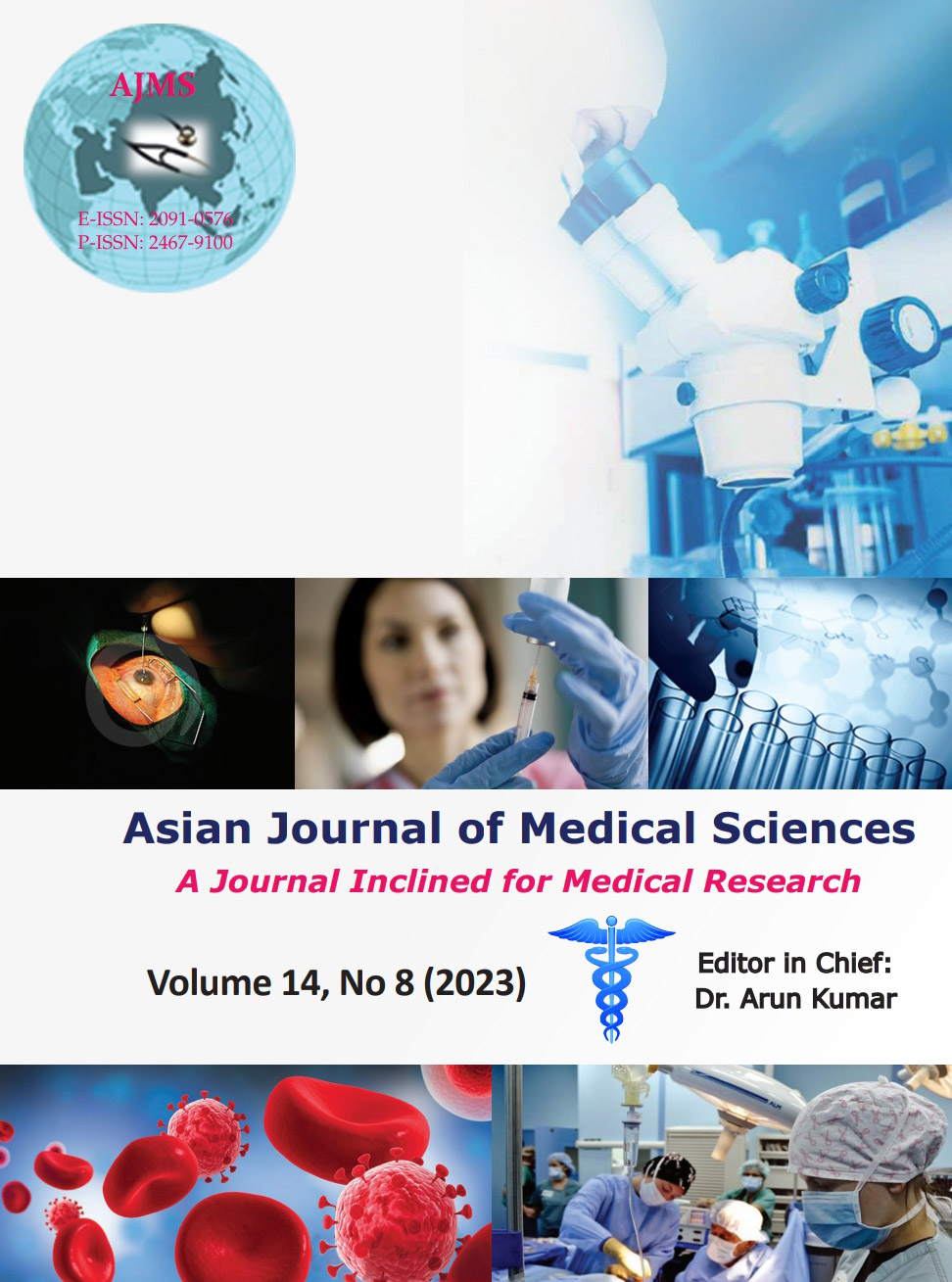Ocular complications and factors affecting visual outcome in herpes zoster ophthalmicus: A prospective study in a tertiary care teaching hospital, Telangana, India
Keywords:
Herpes zoster ophthalmicus; Ocular complications; Visual outcomeAbstract
Background: Herpes zoster ophthalmicus (HZO) is caused by varicella zoster virus and affects the ocular branch of the trigeminal nerve.
Aims and Objectives: To investigate the ocular complications and factors affecting visual prognosis in patients with HZO, a Varicella zoster virus infection affecting the ocular branch of the trigeminal nerve.
Materials and Methods: 40 patients meeting the criteria were enrolled in the study, which was conducted at the Department of Ophthalmology, SVS Medical College, Mahbubnagar, Telangana, India.
Results: The study found that more than 50% of HZO patients experienced ocular involvement, and acute corneal lesions, such as punctate and dendriform keratitis, uveitis, and severe post-herpetic discomfort, were associated with lower visual acuity. However, none of the patients in the study experienced posterior segment HZO problems such as acute retinal necrosis or progressive outer retinal necrosis. Older age groups were found to be more likely to experience post-herpetic neuralgia (PHN), which was also associated with nasociliary nerve involvement and vision loss.
Conclusion: The study suggests early treatment with tricyclic antidepressants to aid in the early resolution of PHN. In addition, the study aimed to evaluate the effect of HIV/AIDS on ocular complications in HZO patients but did not report any findings in this regard.
Downloads
Downloads
Published
How to Cite
Issue
Section
License
Copyright (c) 2023 Asian Journal of Medical Sciences

This work is licensed under a Creative Commons Attribution-NonCommercial 4.0 International License.
Authors who publish with this journal agree to the following terms:
- The journal holds copyright and publishes the work under a Creative Commons CC-BY-NC license that permits use, distribution and reprduction in any medium, provided the original work is properly cited and is not used for commercial purposes. The journal should be recognised as the original publisher of this work.
- Authors are able to enter into separate, additional contractual arrangements for the non-exclusive distribution of the journal's published version of the work (e.g., post it to an institutional repository or publish it in a book), with an acknowledgement of its initial publication in this journal.
- Authors are permitted and encouraged to post their work online (e.g., in institutional repositories or on their website) prior to and during the submission process, as it can lead to productive exchanges, as well as earlier and greater citation of published work (See The Effect of Open Access).




